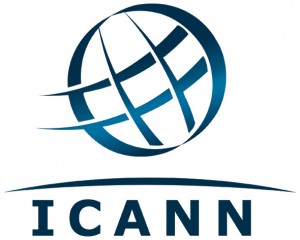ICANN is a strange beast. Even the term “ICANN”, which is itself an acronym, has more than one meaning. There are at least two “ICANNs”, one is the “community”, which is made up of everyone who engages with the ICANN “circus” and then there is ICANN the organisation itself – a California not-for-profit.
While people outside the internet industry probably have never heard of ICANN or had any direct dealings with it, the policies that get decided at ICANN have a tangible impact on how the internet operates.
At the moment ICANN is coming under a lot of scrutiny, as it tries to decouple itself from its rather odd relationship with the US government. Whether this “transition” will finish in 2016 or not remains to be seen, as the entire process is coming under increasing scrutiny from many quarters, both within the US and further afield.
But if ICANN is to be held up as a model of anything it needs to be able to withstand scrutiny of its many facets.
Afnic, the ccTLD domain registry for .fr, released a preliminary study on ICANN’s diversity earlier this week. Exactly why Afnic took it upon themselves to produce the report isn’t very clear, though it would appear that as they are very active participants in ICANN’s processes and their CEO has been heavily involved in the IANA transition work to date that they view this kind of study as being useful for that work.
The initial report runs to about 20 pages and provides some interesting insights into the makeup of a part of ICANN. For the purposes of their study Afnic chose to concentrate on “community leaders”, which is a group of 190 individuals that are at the “core” of ICANN. As they explain, these are people who fulfil at least one of the following roles:
- Board Director
- Supporting Organization or Advisory Committee member of the Council or equivalent body
- gNSO Constituency Executive Committee or Bureau member
- Nominating Committee member
- CCWG-Accountability members
The findings aren’t terribly surprising and can be summed up in one sentence: ICANN is dominated by white men from North America whose first language is English.
The gender breakdown is roughly 74% male versus 26% female.
And when you look at language, English dominates at about 63%:
What the study does not do, and they recognise this, is explore whether or not the “leaders” are a reflection of the broader community, or even the industry. They also don’t explore ICANN the organisation itself, which is unfortunate.
You can read the full report below which goes into a lot more detail:
[spiderpowa-pdf src=”https://www.internetnews.me/wp-content/uploads/2016/06/2016_Icann_Diversity_Data.pdf”]2016_Icann_Diversity_Data

To its credit, .FR’s Afnic here shows a shocking degree of objectivity in pointing out “[a]n alternative view” of the most important languages to be represented at ICANN – a view not based on the UN’s official language list, which includes French as 1 among 6 equals, but on the actual number of global speakers, by which standard French falls to “18th in this list”.
Since when do the French go the extra mile in minimizing the prominence and prestige of their own language?
Quite an interesting report. The U.S. Congress will be thrilled to hear that ICANN needs to hire more Chinese nationals!